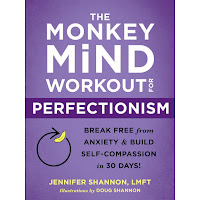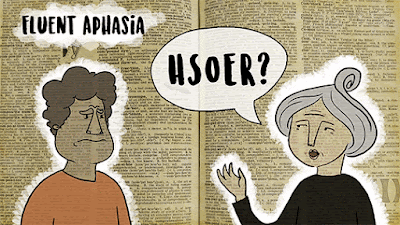 |
| "I already live this way *lol* it's kool" (Ayr Hed) |
The Buddhist term "monkey mind" originates from Chinese xīnyuán and/or Chinese-Japanese shin'en (心猿). It is a Buddhist concept that literally means "heart-mind monkey [business]," for it describes a state of discursive restlessness, capriciousness, and lack of self-control in one's thoughts and emotions.
The "mind monkey" metaphor is found in Buddhist writings in Zen and Chan, Consciousness-only, Pure Land, and Shingon.
It has also been adopted by Taoism, Neo-Confucianism, Chinese poetry, theater, and literature. The expression "monkey mind" commonly appears in two reversible four-character idioms paired with yima or iba (意馬). It translates as "idea horse."
Chinese xinyuanyima (心猿意馬) and Japanese ibashin'en (意馬心猿) illustrate the interconnectedness of a restless mind and wandering thoughts.
The "Monkey King" Sun Wukong in the classic Buddhist Chinese novel Journey to the West is an iconic personification of feeling indecisive and unsettled. More
We need brains, but do we need thoughts?
Few people waste more time overthinking than we do around here at the office of Wisdom Quarterly. It is no way to be. Thinking might make a person smart. Might. It will definitely make her or him obsessive, neurotic, unhappy, and exhausted. Lev Z lost his brain in the war and lived.
What is there instead of thinking, worrying, anxiously projecting, predicting, prognosticating, forecasting, mental doomscrolling, trying to avoid everything bad that can happen? One time on retreat with a very great Buddhist meditation master who was visiting California from Asia for the first time, I was spending all my sitting time thinking and pondering.
I would ask him solutions to my thoughts, which would put to rest my worries. But I would soon think of something new to ask, an unsolvable mental construct, philosophical question, or paradox.
I remember mainly thinking about karma -- the process by which our intentional (cetana) deeds bring about many wished for and unwished for results even though we do most things in ignorance, not with the "intention" that they should bring about the results they do: How can this be "fair" if we didn't know?
Monkey Mind Workout for... (Walmart) - I think this sort of questioning brought him to him to the limit of tolerating my nonsense and indulging my endless stream of questions. Thereafter, every time I'd ask anything speculative or philosophical, he'd answer by asking, "How's your meditation going?"
- I would laugh, realizing that I was spending way more time thinking than "meditating." He asked me how, and I explained my system: Since I only had to be aware of "breathing" (in), I would let my mind wander the rest of the time (when I was breathing out or when the breath was pausing in between, so I was actually able to get a lot of thinking in while still being aware or counting the breath as it happened, only drifting off the rest of the time.
- He was astonished someone could be so utterly daft (or neurotic and full of too much zeal and too overbearing a sense of urgency when what was desperately needed was contentment), and no wonder I wasn't making any progress. "Who told you to do that?" he asked.
- I didn't answer, but the answer was obvious: "No one ever told me not to." (I like thinking, why wouldn't I think? I'm thinking all the time, it's my thing, my jam, my delight, and apparently my downfall!) It was true. I was only supposed to be aware of the breath -- so he again defined "breath" for me:
- "Breath" in BREATH MEDITATION is mindful awareness of anapana (the in-and-out breath and any time in between, which becomes vanishingly brief the slower one breathes for the person paying more and more attention to the whole-body-of-the-breath like the Satipatthana Sutra instructs).
What happened? THINKING STOPPED. (I didn't stop; it stopped). It was the strangest thing. I wasn't expecting it to. I didn't know it could. I don't think I was doing anything different than normal (other than maybe not thinking for once). IT REALLY STOPPED. I kept checking it to be sure. I was fully aware.
Earlier in the day, I had taken a walk in the woods and seen wild turkey and deer, and I had found a giant rusty cistern, a big corrugated water tank, the size of a grain silo, just in the middle of nowhere in the woods. It had no water in it. Imagine dragging a stick across it, the sound it would make, clang-clang-clang: that's what my thinking was like.
_front_cover.png) |
| What a strange album art idea... or is it? |
But here it was. I found it without looking. I had my asylum. There was compulsive thinking. Here's the amazing thing, thinking was possible, it just wasn't automatic. There was peace, rest, direct knowing. That's the thing: I would have thought, if asked before this, "Why think so much?" My answer would have been "To know." But there's no knowing that way. There's only speculation, pondering, wondering, probabilities, possibilities, imagining ways to test intuitions, inspirations, guesses, or logical suppositions and conclusions.
Now, here, the most amazing thing was happening to me -- like everyone had always said was impossible and NOT the goal of meditation. Not thinking it was the goal, here I was enjoying it. And like said, I could think. It just seemed dumb to. Thinking stands between us and direct experience. It's a buffer, a block, a kind of dirty glass we look through for so long we fail to notice how dirty and distorting it is. A rain comes along, like maybe a good long sleep, and things seem clearer -- clearer for not having thought. Thinking gets in the way, yet it's glorified, particularly in the university system.
Eckhart Tolle: Even the Sun Will Die
It seems even now that no one appreciates any of this except maybe Eckhart Tolle. He sat on a bench in a park perfectly content to keep sitting there. It was such a relief compared to all his previous worries, ego-trips in the highly competitive world of academics and self-promotion university faculty maneuvers. Imagine Descartes, Sophia, Nietzche, Socrates, Plato, or Aristotle getting a day off -- getting some no mind asylum (benevolent respite, safety, exile, expat vacation) time. Remember the paean, the joy the Buddha felt right after his great awakening (maha-bodhi). He KNEW freedom was possible and directly attainable here and now. There was no need to die and hope for a heaven. Here and now he saw things clearly.
As it was happening, because it went on for a long time (until it was about to be ruined by having to get up from my meditation mat to go to the restroom before the long evening Dharma talk started and I would be trapped in the hall holding it in for two hours or so), it occurred to me how I might explain this to anyone who might in the future ask. I had to kind of explain it to myself, too, because I was fully conscious, much more conscious, undistracted, and in the moment than I normally was. In fact, I normally tried to keep myself in abstractions most of the time, finding it fun to pose philosophical questions about reality then tackling them with an explanation that could be verified. The verification would show if the speculation or intuition were true. So these were not just pointless thoughts with no purpose; they were grand thoughts about life, the universe, and everything, musings of which Douglas Adams could be proud.
The explanation that spontaneously came to mind -- in just the same way that once when the Buddha was asked if he planned his answers to questions in advance or just spoke extemporaneously as it now occurred to him, he said there was no need to premeditate any more. He instantly knew the answer as the question was being asked. The analogy came to me what it was like, this "not having a brain"/"not thinking" was like, which as I said should be impossible to our normal way of thinking, speaking, conceiving, or imagining. It was exactly like this:
Normally and usually when we "think," it's like tossing a rock into a giant old empty cistern (corrugated galvanized rippled metal water tank) or big storm runoff corrugated drainage pipe, so big one can stand in it, and around here such underground pipes pour runoff into the LA River. It's not a sewer but a wash, a cemented over arroyo. Throw a rock in it, and it ricochets and echoes after hitting multiple times. One question (thought, stone, disturbance), many ripples (vrittis). The commotion of my mind was that nearly anything could trigger it. Now it was at rest, contented and peaceful. I knew not why.
Whatever desire-to-know arose, there the obvious answer simultaneously arose with it. There was no need to ponder or wrack my brain or stir up a hornets' nest of thoughts and questions. I toss one stone, and the reply is one thud, at which point the stone is done, no echo, no commotion, no ripples in the mind or aftereffects.
- I had the factor of enlightenment passaddhi
- I had contentment or santutthi
- Beautiful mental factors (Buddhism)
- I had equanimity or uppekha/upekṣā
- I had forbearance khanti/kshanti
 |
| Brain can blow up yet awareness remains? |
When external disturbances (my having to get up, impelled by the urge to pee which was uncomfortable to hold and conscientiously not wanting to disturb the Dharma talk later by getting up in the middle of it, being bumped by other meditators trying to signal me that we were switching from silent meditation to Dharma talk as if it were possible that I forgot) forced me to get up, move, and slowly head toward the bathroom, the peace and silence remained. It was not an artifact of perfect stillness; I was not asleep or in anyway unconscious, semi-conscious, or unmindfully out of it. I was bright, mindful, and much more away of what was really happening in the moment than usual.
Anyone who says nonthinking is wrong. Anyone who says it is not the goal of meditation is right. Making it the goal, striving not to think or trying to stifle the brain/mind, which has as its job to think, is no way to peace. Being aware just of this moment without evaluation, judgment, ambition, resistance, nonacceptance, force, efforting, that is far more likely to result in this kind of blissful abiding, this "peace of mind."
- Dhr. Seven, Ananda (Dharma Buddhist Meditation), Ashley Wells (ed.), Wisdom Quarterly



.svg.png)





















































































































































































































































No comments:
Post a Comment